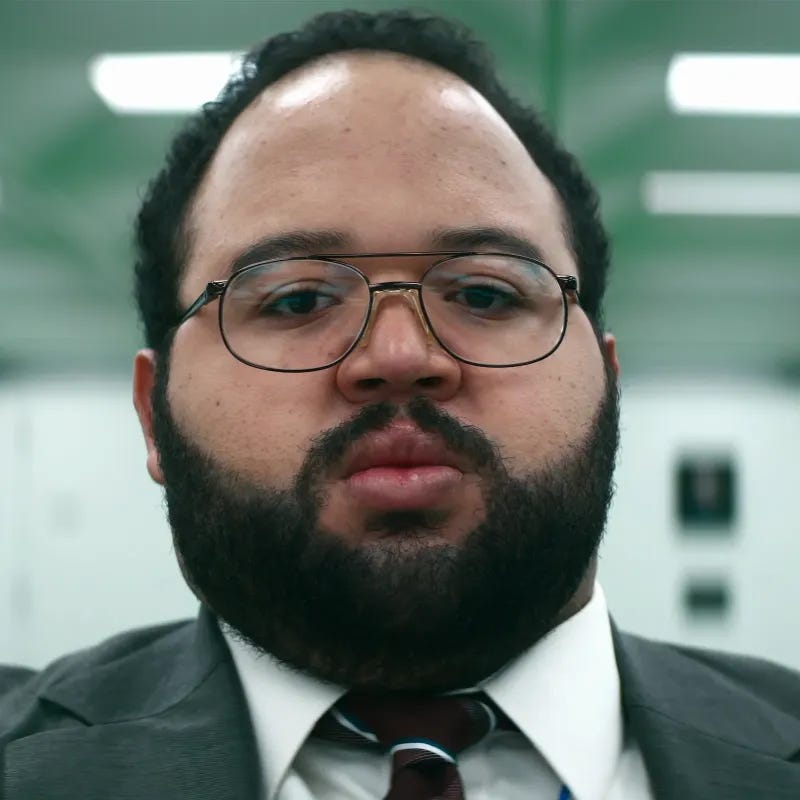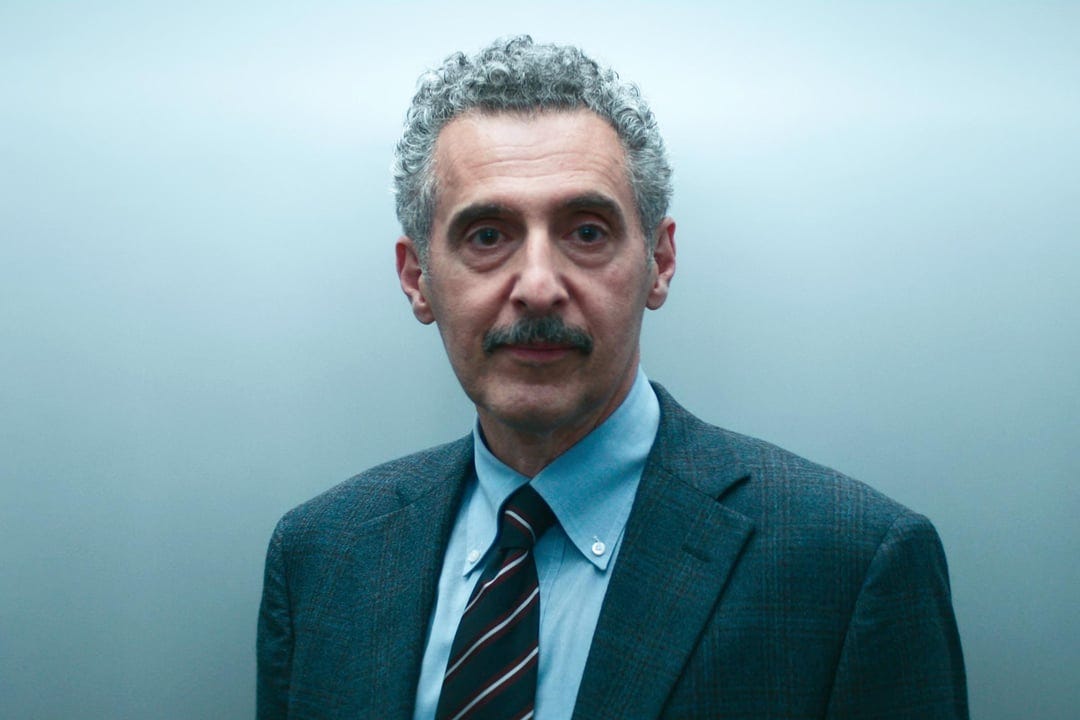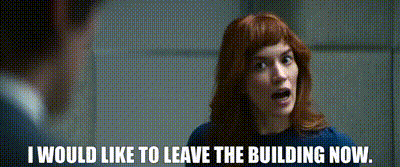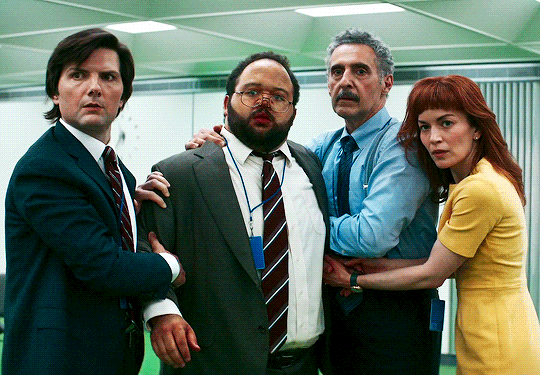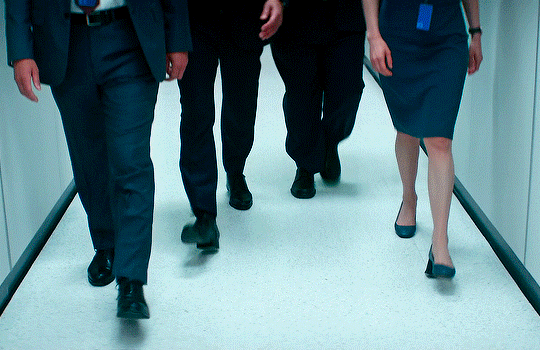Character Development in Severance: Building Arcs Through Iconic Moments
Who are you? Who are you?
Season 2 of Severance is finally upon us, which is why I recently watched the entire first season for a third time.
When I do developmental edits for authors’ novels, I usually reflect on two core questions after reading through a manuscript: How did the main character change? How did the most important secondary characters change? I envision the characters at the start of the story and the end; the differences between the two should be immediately obvious. If they aren’t, that’s a potential area for the story to be improved.
While rewatching Severance, I was struck by how in-your-face the character development is. It’s often plainly spelled out through iconic moments that viewers have latched onto, making them into GIFs, fanart, and tattoos.
I wanted to break down some of those moments—because it’s fun, creatively helpful, and can serve as a recap before we watch season 2.
Spoilers for all of season 1 follow below.
Without further ado—who are you?
Dylan: From Riches to Rags
It’s booty. It’s booty with your name on it.
Dylan G. is our macrodata refiner of the quarter. He’s obsessed with the feeble rewards the corporation gives him for his work. In episode 1, he introduces the concept of incentives to his new colleague by proudly showing her the collection of company trinkets he’s accrued.
I’ve got [my project] 96% sorted, which means I’ve earned four of the five tier incentives, including the erasers and the finger traps that you see displayed here. 100% [of a project completed] is tier five. That gets you a caricature portrait. You'll note I've accrued an embarrassment of wealth in that regard.
Right in the first episode, we’re told that what matters to him most in life is the “waffle party” that workers might receive if they come out on top at the end of a quarter:
Dylan: If we hit our numbers by quarter's end, one of us gets named refiner of the quarter, and that shit gets you a waffle party.
Helly: I'm sorry, ‘a waffle party’?
Dylan: Okay, hazards on, eager lemur. I'm a dead lock for that this quarter, so, uh, don't get your hopes up.
Dylan’s focus in episode 1 is purely on the trite, but later his life abruptly enlarges when he gets a momentary glimpse of his “outie” life and learns that, outside of work, he is a father.
Dylan’s arc is primarily defined by a shift in perspective. In a moment, he goes from feeling fulfilled by finger traps (an embarrassment of wealth) to realizing how small material rewards are compared to something like raising your children. The company’s next department-wide reward is a dance party in episode 7, and we have this very GIF-able moment, where Dylan doesn’t want to join in:
A moment later, he snaps and attacks his manager Milchick, screaming out about his son: What is his name? Tell me his name! He doesn’t feel wealthy anymore; he recognizes that what he has as an innie is paltry.
In the finale, Dylan leaves his waffle party early because it no longer matters to him:
During the climax, unexpected comedy comes from highlighting Dylan’s transformation by showing us how his workplace superior has utterly failed to take note of it:
Just say the word, and I’ll get you a coffee cozy literally right now, Dylan.
To this Dylan cries back: I wanna remember my fucking kid being born!
Irving: From Teacher’s Pet to Lover Boy
I just wonder if it might be helpful for us to stand behind her and perhaps chant her name.
Severance offers us another good writing tip: When writing an ensemble cast of characters, make sure they’re all meaningfully distinct. Irving is in many ways the opposite of Dylan: While Dylan often seems juvenile in his petty fixations, Irving is similar to a clergyman or a monk—deep, erudite, spiritual, and devout.
His religious text, of course, is the company handbook, and when his new colleague Helly feels unsatisfied at work, he thinks he knows what will cheer her up:
Dylan was going on all yesterday about incentives, pencil erasers and waffle parties, as though that’s why we’re here. That’s not why we’re here. If it’s a deeper meaning she craves, she should see the Perpetuity Wing [company’s historical museum].
Notice how the contrast between Dylan and Irving is written so straightforwardly, literally articulated for the viewer.
Dylan’s whole world is defined by corporate swag, but Irving’s is defined by his employers’ values. When his superior Mark says that the Perpetuity Wing is “a lot,” Irving replies, “That place is everything.” For him, his corporate religion is his whole world.
But then he falls in love.
The man he loves shares the same values as him, and when they want to kiss, the man says, “The [company] handbook doesn’t discourage lip-to-lip contact.” Irving struggles with this notion, pointing out that “romantic fraternization” is “discouraged.”
Soon, though, he decides his budding relationship will be good for the company:
Fraternization has nothing to do with it. This could be the start of us uniting the departments the way Kier always intended.
He’s trying to align his old values (company policy is everything) with his new ones (love is important too). This tentative soothing of his cognitive dissonance disintegrates, though, when the company pushes his beau to retire, so that Irving will never see him again.
And we get an Irving transformed:
Mere minutes later, we seen that his values have completely realigned, and with it his priorities and approach to the world. Far from finding nobility in the work, he’s now a full-blown rebel:
Later, it’s made clear that he’s no longer trying to make his love fit into the prescribed confines of the company handbook. He picks up the handbook, which looks like a Bible, and smashes a deviled egg between its pages:
Irving’s transformation is primarily about a shift in values.
Helly: From Lone Wolf to Found Family
All I can be is sorry. And that is all I am.
Helly the hellraiser is our first protagonist in episode 1: The very first shot we get is of her on a table in an empty conference room, and over the intercom is a mysterious voice asking Who are you?
That’s the question Helly asks throughout season 1, finally learning the answer in the finale. Unlike Dylan and Irving, though, she never experiences a transformational shift in values or perspective. From the start, she wants one thing:
She spends episode after episode trying to do just that.
She’s still dynamic, though, even as her goals and motivations remain consistent. Her transformation is rooted in her changing relationships with the characters around her. Initially, she believes the only ally she has is herself, and she treats her coworkers with distance and contempt. As she gets to know herself better, though, she realizes she has a counterintuitive enemy:
Still, in episode 4, she’s not yet allied with her coworkers:
Mark: The work is mysterious and important. And we deal with the uncertainty it brings us in the way that Kier would’ve wanted. Together, as a family.
Helly: I could not, with a razor to my throat, be less interested in being your family.
And it’s true: Helly could never be “family” with someone who wants to do what Kier would’ve wanted. But as her coworkers change, so too does her opinion of them. Probably the most GIFed moment of the show depicts Helly with her family:
By episode 9, she expresses a desire to be literal family:
Helly: You think we’re about to meet our spouses?
Mark: Maybe.
Helly: Maybe it’s each other. That’d be a hoot.
Mark: From Company Man to Unionized
I…I broke protocol this morning.
Mark is our central protagonist, which explains why he changes the most. Over the 9 episodes of season 1, we witness his perspective, values, and relationships all transform.
In episode 1, his manager Milchick puts a blue Band-Aid on Mark’s boo-boo like Mark is a child:
But by the 6th episode, he resents being treating like this: We’re not children, Mr. Milchick.
His growing affection for Helly, the disappearance of his best friend Petey, witnessing the abuse of the wellness counselor Ms. Casey, and his readings from the self-help book The You You Are all combine as a catalyst that leads him to rebel.
“You think you need your job. But your job needs you, not the other way around.”
—The You You Are
As Mark rebels, it brings him closer to Helly, and that closeness further motivates him, until it’s clear that his old company-man ways can’t hold up for more than a few moments in the face of an opportunity to break the rules:
Mark: No more interdepartmental visits!
Dylan: Are you serious?
Irving: I’m…I’m sorry, Mark. It’s… It’s my fault… That I’ve been setting a bad example as the senior-most refiner.
Mark: Which way did you say it was to O&D?
The Writing Is So Good!!
While I was rewatching, I was struck by how many moments in the early episodes are directly inversed in later ones. This seems like a simple trick when it’s broken down into its basic parts, even though Severance feels like a story intelligently and intricately told. This technique can be used both when we’re outlining new stories and assessing our finished drafts:
What are “iconic moments” of characterization in your story—moments where characters directly express their worldviews through quotations, actions, gestures, et cetera, that you as a writer (and reader) feel excited about? How do the iconic moments in the beginning connect to iconic moments at the end?
We can build whole scenes around those moments, and in doing so construct (or revise) meaningful stories.
Until next time,
Hannah Varacalli
Copy & Developmental Editor
www.hveditorial.com


